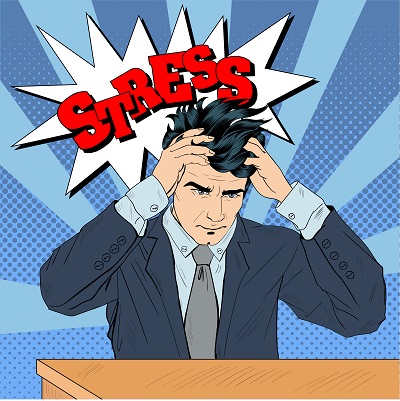 If you reduce the amount of stress you carry with you, you are more likely to feel better. Stress is a leading cause of illness in the United States and many others.
If you reduce the amount of stress you carry with you, you are more likely to feel better. Stress is a leading cause of illness in the United States and many others.
It is important you realize how much stress impacts your life.
When you feel stressed, usually you have a harder than average time sleeping. If you can’t sleep, then you can’t function well during the day, and are more likely to become ill because your immune system is weak.
With proper sleep and little stress however, your body is much more likely to respond positively and overcome any illness that may come its way.
How much stress do you carry around in your life?
Stress Inventory
Find out what your stress triggers are, or how much stress you carry around with you daily, and you may improve the quality of your life and your health. Here are some common stress triggers. How many can you identify with?
1. Feeling tired or lethargic during the day even after a good night of sleep.
2. Worrying constantly about work assignments, school assignments or other activities that have a deadline.
3. Always arriving late to an event or meeting because you are scrambling to catch up on work that might have been done already had you not procrastinated.
4. You drink almost every night in excess to “relax” after a hard day’s work.
5. Crying a lot for no reason, or feeling the blues constantly.
6. Falling behind your peers.
7. Feeling irritable or angrier than usual.
8. Driving recklessly or endangering yourself while driving or engaging in other ordinary activities.
9. Feeling like simple tasks are overly cumbersome.
10. Having trouble falling or staying asleep at night.
How many of these situations can you relate to? Stress is something you want to eliminate from your life as best you can. While you can’t possibly rid the world of everything stressful, you can eliminate some of your stress, and some stress relief is better than no stress relief.
Here are some tips you can adopt to help release or reduce some of the stress in your life. The less stress you have the better your chance of fighting a cold. Remember, none of these techniques guarantees you will not get sick; if you do get sick however, if you follow the advice offered in this guide you are more likely to recover much quicker than others.
Plan Ahead
If you have to go to work the next day, then pick out what you want to wear the night before, and make sure it is ironed and pressed so you are ready to go. That way you can sleep in or hit the snooze button at least once without running late.
Exercise Daily
You don’t have to be a marathon runner to reap the benefits of exercise. All you really have to do is get outside for 15 minutes once or twice a day. Exercise helps bolster your body’s immune system. When you exercise, you also feel better on the inside.
Organize & Prioritize
If you have too much to do, you will find your tasks weigh you down. This can lead to stress, and stress contributes to illness. The most common argument people offer for not organizing is “I don’t’ have time”. The reality is you do have time, especially if you want to get well.
The less attention you pay to your body the more likely you are to stay sick. As long as you stay sick, you are going to suffer. If you take just 30 minutes out of each day to organize and prioritize, you will find your days flow much smoother. If you need help organizing, you can always ask a friend or family member to help out. Most will do so with gusto.
Naturally there are many other ways you can reduce stress. You can take a walk twice daily outside to get out of the house or your office building. You can take a 15 minute power nap. A power nap isn’t really a nap. It is a small period of time you can use to recline, relax and kick back.
The goal is not to think about the work ahead of you. Rather, you should spend the time focusing on creating more energy in your life. Imagine what your life would be like if you finished all of your tasks ahead of schedule. Once you do this, you are better able to manage the stress you do have on your plate without releasing too much in the way of cortisol or stress hormones.
Some people prefer traditional stress busters like a massage, pedicure or drive along the countryside. Any of these are a good idea. When you prepare for bed, try not to drink up to four hours before your head hits the pillow. While you may “think” the alcohol relaxes you, in the longer term it actually deprives you of much needed sleep.
Alcohol only causes you to feel sleepy for a short time. Then it acts more like a stimulant, depriving you of deep sleep. You also develop a headache or become dehydrated, which can lead to even more stress.
You might consider setting up a bedtime ritual that involves meditation, a good read and silky sheets to relax in. Do whatever it is that appeals most to you to get the quality sleep you need. Speaking of sleep, let’s move on to our last immune boosting tactic…






